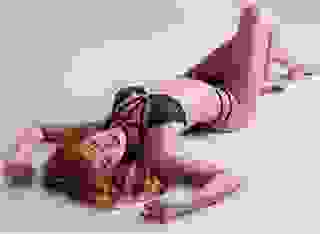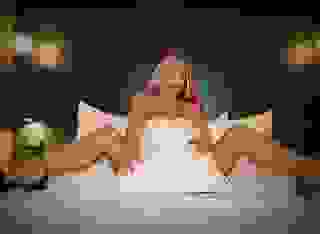- Romance
- Culture Clash
Note: You can change font size, font face, and turn on dark mode by clicking the "A" icon tab in the Story Info Box.
You can temporarily switch back to a Classic Literotica® experience during our ongoing public Beta testing. Please consider leaving feedback on issues you experience or suggest improvements.
Click hereThis is my submission to the Wine and Old Lace event. I went a bit back farther than most, but it still fit the parameters. I hope you enjoy.
*****
I watched the settlement for six days, amazed at how inept the people were at the simple task of living. They were oblivious to their surroundings, the men stomping about self-importantly while the women, for the most part, kept their heads down and remained silent.
They didn't even know I was there, even though I had been close enough many times to touch them. The place was so far removed from my norm I had no comparison for it at all, so I basically gawked at them from the shadows.
I was in 'New England', far from my home in the South, driven up here by wanderlust and trading opportunities. My companions were seven Cherokee Indians, one of them my brother.
He was a brother by choice. My father was a famous trader who wasn't home much, and my mother died from a fever I was eight years old. Old enough, in his opinion, to join him. I spent the next six years wandering the Trader's Path up and down the backbone of the East Coast. Our wandering stopped when my father met Falling Sunshine, a young widow with an eleven-year-old son and nine-year-old daughter. Her husband had fallen in a skirmish with another tribe and her situation was desperate. She was about to be forced into a marriage she did not want by the Chief when my father stepped in, offering to marry her instead.
A deal was struck and suddenly he had a new wife, a new home, and another set of children.
Her village became our base of operations. We'd still go on trading missions, but he would return to his new bride as quickly as possible. She tilled the fields and kept the hearth, giving him three more children, two girls, and a boy. Falling Sunshine went from being destitute to an important woman, the wife of a trader who favored his home village. The Cherokee were matriarchal society, and her newfound status got her a seat on the Women's Council, a powerful arm of their society. Not a lot happened in a Cherokee town without their blessing. They controlled the home life, owned the land, and could even divorce a husband with cause.
Despite being from different cultures, she was an excellent wife to my father and a great mother to us. By then I barely remembered my real mother and I bonded to her. Her son followed me like a shadow and to this day if you saw one it was guaranteed the other was not far away.
My Cherokee name was Long Walker, given to me by the tribe for my habit of going on rambles. Starting at fifteen, I would take off on longer and longer trips. When I was sixteen my little brother joined me and sometimes we would be gone for months. We both carried a heavy pack of trade goods to help ensure our safety. Traders were a different class, some tribes welcomed us, some treated us like a necessary evil, but usually, all granted us safe passage.
Not that it was all smooth sailing. I ran into three Shawnee once on my way to their village. They were as young as I was, one even younger, and they looked at my pack with greed in their eyes. We spent the night together and I didn't sleep a wink. The next morning I was up and packed, telling them I'd be at their village in a couple of days and looked forward to the trading.
One just grinned at me and I knew. He pulled out his knife and with a yell, lunged at me. I hit him in the face with my ninety-pound pack. He dropped and I immediately started running. Three to one odds were just a little too steep for my liking. The other two were after me instantly, and the third joined us before we'd gone a mile. Besides walking great distances I was also a pretty decent runner and managed to pull away. Knowing they would eventually catch me, I started looking.
My opportunity was a small river, swollen and muddy from recent rains. I dove in, swam to the other side, made sure I left plenty of tracks, running until I came to some bare rock that led back to the river. I dove in, praying I didn't find a tree limb at the end of the dive. I got a few scratches but was otherwise unhurt. I immediately drifted downstream to where I dove in and hooked on to the branches of a large tree that had fallen in the water.
I lay there, waiting. My plan was to wait until they crossed the river and went into the woods, then get out, grab my pack, and put as much space between me and my pursuers as I could.
They appeared at the river bank and started arguing. I could understand their language so I listened. "He's gone. Let's go back, grab his pack, and leave."
The leader spoke up. "No! We have to finish him. If we don't he'll come back, with friends. Do you think our people want a full-scale war because we had stolen a trader's pack? We have to find him, kill him, and hide his goods until we can bring them out a little at a time. Little Buck, you stay here, in case he tries to come back. Tall Pine, come with me."
They crossed the river and disappeared into the woods. I figured I had about twenty or thirty minutes before they figured out what I'd done. My plan was to let go of the tree and drift down the river and get out once I was out of sight. Just as I was about to let go I felt the log shake and Little Buck appeared, walking out and using the log for a clear view of the river.
I froze. After a few minutes, he turned to go back and looked down, right into my face. I saw the shock in his eyes. Then he drew in a breath, getting ready to yell for his friends. I rose up out of the water and grabbed him, falling back. He didn't have time to use his bow and I felt his hand go to his waist, searching for his knife. I jammed a finger into his eye, and when he opened his mouth to scream I pulled him under. I'd seen an alligator pull a deer into the water the same way, watching as he rolled the deer a few times before sinking under. I did the same thing, grabbing his jaw and drawing him down. He tried to bite me but I just held him until he stopped struggling. I rose up, gasping for breath, before diving under again, pulling him under the tree and tying him to a branch by his hair. I had just disappeared into the woods when I heard the others calling for him. I managed to get back to my pack, pulling it into the brush and opening it.
They came back into the clearing and saw my pack gone. The leader began ranting when he felt a bee sting to his back. He reached around and looked at the slender dart, trying to figure out what it was. I managed to get another one into his friend. The Cherokee were famous for using blowguns to hunt small prey. The darts were tipped in the toxins of the canebreak frog. If you licked on it gave you hallucinations, and in a concentrated dose would cause temporary paralysis. It affects the victim very quickly and it was only a moment before they started feeling the poison. I managed to get another dart in each before I stepped out of the brush. The leader, who died unnamed, was still coordinated enough to pull his knife and charge me. I slapped his hand, making the blade go by me, and buried mine in his stomach, ripping upwards with all the strength I had, until the blade hit the breastbone. He fell down, his entrails out. I'm pretty sure he wanted to scream in pain, but the toxin had taken effect. He lay there quivering and gurgling until he died. I sat beside him, whispering in his ear.
"I'm going to cut out your heart and burn it, along with your balls and your hands. You'll have a horrible afterlife, wandering around with no heart, balls, or hands. Hell of a way to spend eternity."
His eyes flared in panic, then he let out a gurgling breath that ended in his death rattle. I had no intention of doing any of what I told him, but he went to his death believing I was going to. I left him laying, picked up his companion and walked back to the river, wading out to my waist. He was just starting to come around when I pushed him under. When he was dead I dove down and tied him beside his friend. They'd stay there until they started rotting. The hair would pull out and what was left would probably rise to the top because of the bloat. If anyone found them they would think they drowned. Then again, it the catfish got to them there would be nothing left.
I took the leader, pushed his guts back in and added as many rocks as I could find, binding it closed with his loincloth, took him out until it was neck-deep on me, and let him go. There must have been some residual air in his lungs because a few bubbles rose to the top.
I gathered my pack, breaking their bows and throwing them and the arrows into the river as I crossed it for the last time. It had started raining as I walked away, getting heavier as I traveled. Any sign of us being by the river would be long gone by the time anyone started looking. It could be a while; young men were prone to go off for days, hunting or looking for glory. It wasn't all that rare that some never came back.
I walked until late afternoon, stopping when I found a small cave. There were some dry wood and pine cones at the entrance, so I got out my flint and steel and started a fire, fashioning a torch out of a piece of heart pine heavy with sap. I checked the cave out, finding three rattlesnakes and a couple of mice nests. I could get along with the mice but killed the snakes, dressing them out and roasting them for my dinner. I didn't particularly like rattlesnake but I didn't hate it, and they were handy. I cut a big piece of bark off a poplar tree, stripped out the inner bark and used it to lace up the outer bark, forming a bowl capable of holding water. I filled it, and set it above the fire. As long as the flames didn't go higher than the water, the bowl would not catch fire. When the water was steaming I dropped a ball of tea in it, dipping it out with a pewter cup when it was done. I enjoyed the tea, thinking about the day. I didn't enjoy killing, but if it was me or him, well, he was in a world of shite. I liked to think I was a civilized man in this Year Of Our Lord 1725, but I lived among uncivilized men. Often the word for stranger and enemy was the same for these people and they were never hesitant to take advantage.
My father was fond of remembering his days as a sailor, saying it's what got him the money to start his trading business. I read between the lines later, realizing my father had been a pirate and had not parted with his crew on the friendliest of terms. I always felt like that was why he went as far inland as he could when he came ashore. He'd "served" with all kinds of men and had learned sword techniques from a Moor. He always carried one on his travels, and he taught me and my little brother that style of fighting. I always carried a short twenty-inch sword, slung over my shoulder in the Moorish style. Most Indians and white men of the interior had no use for or skill with them, preferring knives. Father had also taught us a lot about knife fighting, using wooden ones he'd carved on the long winter nights. We learned to use and throw them with either hand, another skill that came in handy over the years. He also taught us staff fighting techniques.
The next morning I checked my snares, delighted to find a fat hare. I skinned him with my hands as I had been taught and soon had him turning on a spit. When it was falling off the bone tender, I sprinkled it with salt and some of my precious pepper and had a fine breakfast. Washing up in a little spring, I shouldered my pack and went West, deviating from the northerly path I had been following.
*****
Nine days later I was hidden in a screen of brush, watching the daily workings of a Shawnee settlement. I'd watched for two days, inordinately proud no one had spotted me. I waited until noon before hoisting my pack and stepping on to the path to the village. I caused quite the stir, appearing out of nowhere. I made sure my hands were away from my weapons, calling out in their language. "Trader! Trader! I come in peace!"
I was soon surrounded by warriors and escorted to the center of their town to stand before the Chief and his Council. After a short interrogation, I found myself seated with the leaders, passing the pipe. Of course, we used my tobacco. I had twenty pounds wrapped in oilcloth, sure I'd walk away with none. I took a draw on the pipe and passed it on. I never cared for smoking because it dulled your sense of smell and the scent of tobacco tended to hang heavily in the air, a dangerous thing for a trader and traveler. Also in my pack were knives, needles, thimbles, threads, beads, and a few odds and ends I thought they would find interesting. I had ten pounds of seashells, the mother of pearl insides gleaming. It was one of the first things to go.
They offered me a woman to share my blankets while I was their guest, a custom among some tribes, but I gently declined, saying the white man's religion forbade such activity. I gifted the woman with a bundle of mixed colored beads as an apology and everyone seemed well pleased.
When I left two days later my pack was ten pounds heavier and contained none of what I came with except my salt and pepper. The trade goods would sell well to the whites of my home area. I had an escort of warriors for two days but when they reached the acknowledged end of their territory they bade me farewell. Twenty-five days later I was home. I spread the goods I'd bartered for on the kitchen table. My father allowed as how I'd done 'tolerable', as about as much praise as one was apt to get from him. We sold the goods slowly to keep the prices up. It was fall by then and I would make no more trips until spring.
I didn't sit idle. My brother was thirteen now, so I took him on extended hunting trips. I'd taken some of my trade money and bought a nice musket. We used that to hunt elk and bear, carefully preserving the hides, making sure the fur stayed on the skins of the bears. Pigs were rare but my mother had learned to make bacon, cured hams, and sausage out of the bear meat. We kept enough to make sure our family had meat for the winter and sold the rest. Mother got a third, I got a third, and Flows Easy got a third. He'd gotten his adult name from the way he moved. He just seemed to flow along slowly, but he was really quite fast.
We'd go with our father down to the white settlements to sell the furs because we got the best prices there. We didn't really like the towns. To us, they all stank of defecation, rotten food, and unwashed bodies. Their money was still good though, so we sold, then bought trade goods for the coming spring. There again, Father got a third of the prices of the furs and Flows Easy and I got the rest.
We traded in Charlottetown, a large town on the banks of a major river. There was a new shop from the last time we were there and I went in, amazed that it was a gunshop. Guns were scarce in our area at the time. Most preferred bows, as did I, but a rifle could come in quite handy at times. There was an assortment of old weapons, but the centerpieces of the shop were the new "Pennsylvania" style rifles, long-barreled, lightweight weapons with twice the range of most muskets at the time. The gunsmith took the time to explain how the grooves cut into the interior of the barrel, the "rifling", made the bullet fly straighter than if it traveled down the old smoothbores, basically just tumbling out the end of the barrel.
They were horribly expensive, but I bought one, in .40 caliber, with all the accessories, including five pounds of powder and ten pounds of lead. The only thing I didn't buy were English flints. There was plenty of flint lying around at my home that would do just fine.
I was just about to leave the shop when he showed me a recent trade, a shotgun with double barrels. He was having a hard time getting rid of it because it had been a ladies' weapon, in 20 gauge and was considered too lightweight for anything but birds.
"Too bad, really. It's just as deadly as a musket if you put solid lead balls in it, and buckshot can knock down just as many deer as any rifle, if you get close enough."
I traded in my musket and got it and all the molds I would need. The shotgun was for Flows Easy. I knew they would never sell such a weapon to an Indian, but when we were in the backcountry no one would know, and if they did chances are they wouldn't be around long enough to tell.
My father thought I was foolish to spend so much on weaponry until he fired the rifle. I was sure he would be trading for one the next trip.
*****
Flows Easy and I hunted throughout the rest of the fall and the winter, sharing the meat with the village. When the weather broke I got ready to go out again. This year Flows Easy was going with me. Our mother sighed, sad that her son was growing up, but she had four other children to finish rearing. My sister Dawn Bird was turning thirteen, developing into a young woman, and many of the young men expressed interest in courting her. Most of the girls in the village married around the time they were fifteen. People matured pretty fast then and usually died fairly early. It was worse in the white settlements; they had an aversion to bathing or taking care of their bodies, unlike the Cherokee. Many barely made it to their mid-thirties, looking sixty when they died. Many of the women died in childbirth, the filthy conditions leading to infections and disease.
Mother watched the young men like a hawk and I knew my sister had plenty of time before she was ready to take a husband.
We shouldered our packs, kissed our mother, hugged our siblings, shook hands with our father, and walked away. Because it was his first time out, we didn't go far, into another Cherokee village deeper into the interior, near the shared hunting grounds of "Cain-tukke", a mass of canebreaks, meadows, and forests that teemed with game. It was shared uneasily by several tribes and disputes sometimes erupted over hunting rights, but mostly they kept the peace.
I'd started calling my brother Jacob, his 'Christian' name because it was easier. He mostly watched this time, learning his craft. In another few years, he'd be out on his own so it was important he established contacts and struck up friendships now. We became quite popular when we went on a hunting expedition and shot a woods Buffalo with my rifle, a breed that was getting harder and harder to find. We gave the meat to the tribe but kept the hide, even though it was very heavy. It would fetch a very good price. Jacob impressed them by killing a large bear with the shotgun, standing steady as it charged, waiting until it was close enough for a kill shot. He put one ball into the chest and another into the head when it was only about twenty feet away. It slid almost to his feet before it died, swiping in reflex. I'd kept my rifle on it, just in case.
We sold out fast, so I went back for another load while Jacob stayed, coming back to find him heavily involved in a girl two years older. He never made promises and she cried when we left, but he had been honorable in his conduct and there were no hard feelings.
We went out one more time, going South and West, trading at a village that had seen better days. The white men were encroaching on their lands and they were debating pulling up stakes and moving farther west or staying to stick it out. By now most of the conflicts between the settlers and Indians in the area had been resolved, the Indians losing every time. By the time we left they had decided to move on while it was early enough in the year to establish somewhere else. We watched them pack up with sadness. Just because they were leaving did not make it safer for them. Most likely any lands they found were already claimed by other tribes, and unless they could buy or ally themselves, they could be forced to move on.
That fall when we sold, we made enough off the Buffalo hide to buy another weapon. It was a 'boarding' pistol, a double-barrel in .50 caliber, with an eight-inch blade sticking out between the barrels. It was for close-quarters combat on a ship. You fired both barrels and then wielded it like a short sword. My father was delighted when he saw it, bringing back memories, no doubt, and it was in my sash when we went out the next year. Between the rifle, shotgun, and pistol we had five shots we could use rapidly.








